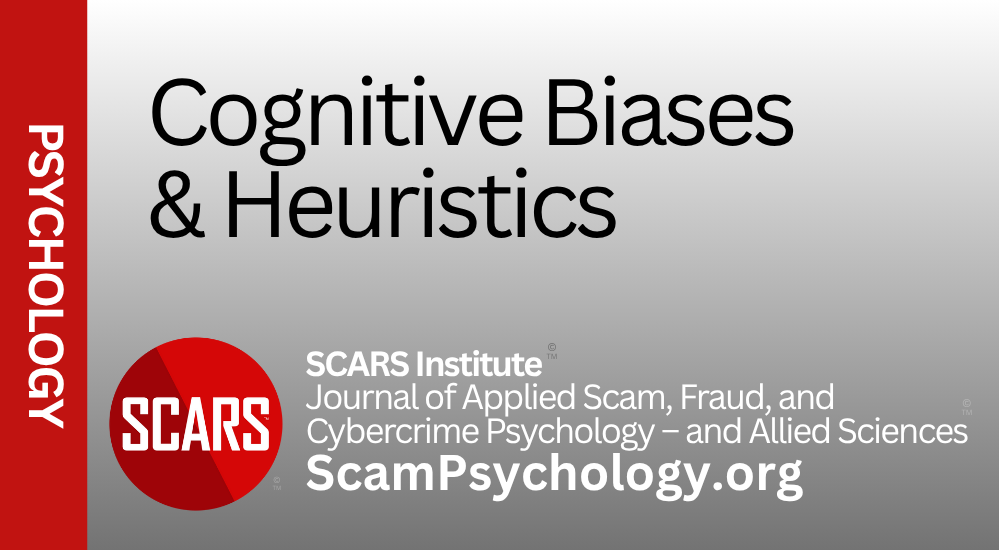Somatic Effects of Trauma: Bladder Effects From Hyperactivated Amygdala
Principal Category: Somatic Effects
Author:
• Tim McGuinness, Ph.D. – Anthropologist, Scientist, Polymath, Director of the Society of Citizens Against Relationship Scams Inc.
ABSTRACT
People with a hyperactivated amygdala, often due to chronic stress, anxiety, or trauma, can experience various bladder issues. The amygdala, central to the body’s stress response, impacts numerous bodily functions, including the urinary system. Trauma victims, such as those scammed, often experience urinary problems linked to the body’s stress response involving the hypothalamic-pituitary-adrenal (HPA) axis and the autonomic nervous system (ANS). The sympathetic nervous system (SNS) activates the “fight or flight” response, increasing heart rate and diverting blood flow, while the parasympathetic nervous system (PNS) promotes relaxation and digestion through the vagus nerve. Hyperactivation of the amygdala can lead to an overactive bladder, urinary urgency, incontinence, interstitial cystitis, nocturia, difficulty emptying the bladder, and even adult bedwetting. These issues arise from the dominance of the SNS, causing heightened arousal and increased signaling to the bladder. Addressing the amygdala’s hyperactivation through stress management, therapy, and relaxation exercises can help alleviate these symptoms.

Somatic Effects of Trauma: Bladder Effects From Hyperactivated Amygdala
People with a Hyperactivated Amygdala, often due to Chronic Stress, Anxiety, or Trauma, can experience a range of Bladder Issues
The amygdala is involved in the body’s stress response and can impact various bodily functions, including the urinary system.
This is a brief introduction to the topic.
Trauma and the Stress Response
The urinary effects experienced by trauma victims, including those who have been scammed, are often connected to the body’s stress response and can indeed involve the vagus nerve. Here’s how these elements are related:
When someone experiences trauma, their body’s stress response system is activated. This involves the hypothalamic-pituitary-adrenal (HPA) axis and the autonomic nervous system (ANS), which includes the sympathetic and parasympathetic nervous systems.
The amygdala, a part of the brain that processes fear and emotions, plays an important role in triggering this response.
Sympathetic Nervous System (SNS)
The sympathetic nervous system (SNS) is one of the two primary divisions of the autonomic nervous system, working alongside the parasympathetic nervous system to regulate involuntary bodily functions. The SNS is often described as the “fight or flight” system because it prepares the body to respond to stressful or emergency situations.
When activated, the SNS triggers a series of physiological changes: it increases heart rate, dilates the pupils, expands the airways, and releases stored energy by stimulating glucose production. It also diverts blood flow away from the digestive system and towards the muscles and vital organs, enhancing physical performance and alertness.
This rapid response is necessary for survival, enabling the body to either confront or escape from threats. The SNS operates through a network of nerves and neurotransmitters, including adrenaline and noradrenaline, to orchestrate these widespread changes, thus ensuring the body is primed for immediate action.
Parasympathetic Nervous System (PNS)
The parasympathetic nervous system (PNS) is one of the two main divisions of the autonomic nervous system, with the other being the sympathetic nervous system. The PNS is often referred to as the “rest and digest” system because it conserves energy by slowing down the heart rate, increasing intestinal and gland activity, and relaxing sphincter muscles in the gastrointestinal tract.
This system is responsible for maintaining bodily functions when we are at rest, such as promoting digestion, lowering blood pressure, and reducing stress hormones.
The parasympathetic nervous system operates primarily through the vagus nerve, which extends from the brainstem to various organs in the body. Its actions are typically in opposition to those of the sympathetic nervous system, which prepares the body for “fight or flight” responses during stressful situations. By promoting relaxation and recovery, the PNS plays a crucial role in sustaining overall health and equilibrium within the body.
Amygdala and Urinary Effects
Hyperactivation of the Amygdala: Trauma can lead to hyperactivation of the amygdala, which keeps the body in a constant state of alert. This hyperarousal can influence bladder function through the autonomic nervous system.
Vagus Nerve and Autonomic Nervous System
The vagus nerve is a key component of the parasympathetic nervous system, which helps to calm the body after a stress response. It influences various bodily functions, including heart rate, digestion, and bladder control.
Parasympathetic Nervous System: When the vagus nerve is functioning properly, it helps to regulate the bladder by allowing it to contract and empty at appropriate times.
Sympathetic Nervous System: Trauma and chronic stress can cause an imbalance, with the sympathetic nervous system (fight-or-flight response) being more dominant. This can lead to overactive bladder symptoms, such as increased urinary frequency, urgency, and incontinence.
Urinary Effects in Trauma Victims
Here are some common bladder issues associated with a hyperactivated amygdala:
Increased Urinary Frequency: Chronic stress and anxiety can lead to an overactive bladder, causing individuals to feel the need to urinate more frequently. This can be due to heightened sympathetic nervous system activity, affecting bladder control.
Urinary Urgency: A heightened sense of urgency to urinate, even when the bladder is not full, can occur. This urgency is often related to the body’s heightened state of arousal and the increased signaling to the bladder.
Urinary Incontinence: Stress incontinence, where urine leaks out during physical activities that increase abdominal pressure (such as coughing, sneezing, or exercising), can be exacerbated by a hyperactivated amygdala. Anxiety and stress can also contribute to urge incontinence, where there is a sudden, intense urge to urinate followed by involuntary loss of urine.
Interstitial Cystitis (Painful Bladder Syndrome): Chronic stress can contribute to or exacerbate interstitial cystitis, a condition characterized by bladder pain and frequent, urgent urination. The exact mechanism is not entirely understood, but it is believed that stress can worsen inflammation and sensitivity in the bladder.
Nocturia: Waking up frequently during the night to urinate can be associated with stress and anxiety. This condition disrupts sleep and can further contribute to stress and overall well-being.
Difficulty Emptying the Bladder: In some cases, stress and anxiety can cause the muscles involved in bladder control to tense up, leading to difficulty in completely emptying the bladder. This can result in a feeling of incomplete urination and repeated trips to the bathroom.
Adult Bedwetting (Nocturnal Enuresis): Adults with a hyperactivated amygdala may also experience bedwetting. Chronic stress and anxiety can interfere with the body’s normal signaling mechanisms during sleep, leading to involuntary urination at night. This can be particularly distressing and may compound feelings of anxiety and stress.
These bladder issues are often part of a broader set of symptoms associated with chronic stress and anxiety.
Addressing the underlying hyperactivation of the amygdala, through techniques such as stress management, therapy, and relaxation exercises, can help alleviate these bladder-related symptoms.
If bladder issues persist, it’s important to consult a healthcare professional for a comprehensive evaluation and appropriate treatment.
More:
IMPORTANT NOTE: This article is intended to be an introductory overview of complex psychological, neurological, physiological, or other concepts, written primarily to help victims of crime understand the wide-ranging actual or potential effects of psychological trauma they may be experiencing. The goal is to provide clarity and validation for the confusing and often overwhelming symptoms that can follow a traumatic event. It is critical to understand that this content is for informational purposes only and does not constitute or is not a substitute for professional medical advice, diagnosis, or treatment. If you are experiencing distress or believe you are suffering from trauma or its effects, it is essential to consult with a qualified mental health professional for personalized care and support.

Welcome to the SCARS INSTITUTE Journal of Scam Psychology
A Journal of Applied Scam, Fraud, and Cybercrime Psychology – and Allied Sciences
A dedicated site for psychology, victimology, criminology, applied sociology and anthropology, and allied sciences, published by the SCARS INSTITUTE™ – Society of Citizens Against Relationship Scams Inc.
TABLE OF CONTENTS
A Question of Trust
At the SCARS Institute, we invite you to do your own research on the topics we speak about and publish, Our team investigates the subject being discussed, especially when it comes to understanding the scam victims-survivors experience. You can do Google searches but in many cases, you will have to wade through scientific papers and studies. However, remember that biases and perspectives matter and influence the outcome. Regardless, we encourage you to explore these topics as thoroughly as you can for your own awareness.
Please Leave A Comment
Recent Comments
On Other Articles
[better_recent_comments number=”5″ format=”{avatar} on {post}: “{comment}” {date}” avatar_size=”20″]
A Note About Labeling!
We often use the term ‘scam victim’ in our articles, but this is a convenience to help those searching for information in search engines like Google. It is just a convenience and has no deeper meaning. If you have come through such an experience, YOU are a Survivor! It was not your fault. You are not alone! Axios!
Statement About Victim Blaming
Some of our articles discuss various aspects of victims. This is both about better understanding victims (the science of victimology) and their behaviors and psychology. This helps us to educate victims/survivors about why these crimes happened and to not blame themselves, better develop recovery programs, and to help victims avoid scams in the future. At times this may sound like blaming the victim, but it does not blame scam victims, we are simply explaining the hows and whys of the experience victims have.
These articles, about the Psychology of Scams or Victim Psychology – meaning that all humans have psychological or cognitive characteristics in common that can either be exploited or work against us – help us all to understand the unique challenges victims face before, during, and after scams, fraud, or cybercrimes. These sometimes talk about some of the vulnerabilities the scammers exploit. Victims rarely have control of them or are even aware of them, until something like a scam happens and then they can learn how their mind works and how to overcome these mechanisms.
Articles like these help victims and others understand these processes and how to help prevent them from being exploited again or to help them recover more easily by understanding their post-scam behaviors. Learn more about the Psychology of Scams at www.ScamPsychology.org
Psychology Disclaimer:
All articles about psychology, neurology, and the human brain on this website are for information & education only
The information provided in these articles is intended for educational and self-help purposes only and should not be construed as a substitute for professional therapy or counseling.
While any self-help techniques outlined herein may be beneficial for scam victims seeking to recover from their experience and move towards recovery, it is important to consult with a qualified mental health professional before initiating any course of action. Each individual’s experience and needs are unique, and what works for one person may not be suitable for another.
Additionally, any approach may not be appropriate for individuals with certain pre-existing mental health conditions or trauma histories. It is advisable to seek guidance from a licensed therapist or counselor who can provide personalized support, guidance, and treatment tailored to your specific needs.
If you are experiencing significant distress or emotional difficulties related to a scam or other traumatic event, please consult your doctor or mental health provider for appropriate care and support.
Also, please read our SCARS Institute Statement About Professional Care for Scam Victims – here
If you are in crisis, feeling desperate, or in despair please call 988 or your local crisis hotline.
SCARS Institute Resources:
- If you are a victim of scams go to www.ScamVictimsSupport.org for real knowledge and help
- Enroll in SCARS Scam Survivor’s School now at www.SCARSeducation.org
- To report criminals visit https://reporting.AgainstScams.org – we will NEVER give your data to money recovery companies like some do!
- Sign up for our free support & recovery help by https://support.AgainstScams.org
- Follow us and Find our podcasts, webinars, and helpful videos on YouTube: https://www.youtube.com/@RomancescamsNowcom
- SCARS Institute Songs for Victim-Survivors: https://www.youtube.com/playlist…
- See SCARS Institute Scam Victim Self-Help Books at https://shop.AgainstScams.org
- Learn about the Psychology of Scams at www.ScamPsychology.org
- Dig deeper into the reality of scams, fraud, and cybercrime at www.ScamsNOW.com and www.RomanceScamsNOW.com
- Scam Survivor’s Stories: www.ScamSurvivorStories.org
- For Scam Victim Advocates visit www.ScamVictimsAdvocates.org
- See more scammer photos on www.ScammerPhotos.com















![niprc1.png1_-150×1501-11[1]](https://scampsychology.org/wp-content/uploads/2025/05/niprc1.png1_-150x1501-111.webp)